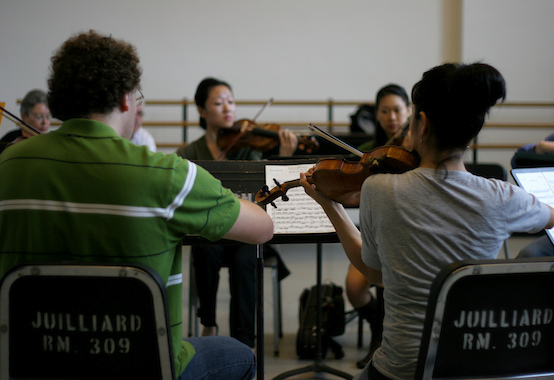Over the past decade, metal and related genres have shifted toward a highly technical perspective on instrumentalism. Where earlier genres valued the primitive and passionate, bands now tend to begin with a grounding in jazz and progressive rock theory and expand into metal.
This raises the bar for entry into the genre, but on the level of mechanics only. Corresponding, creativity seems to have declined in the genre, perhaps because artists with something to communicate — a.k.a. “content” — now face an uphill path toward technical perfection before that content will be accepted in the genre.
A similar phenomenon occurred in the classical genre as well. Like metal, this niche genre struggles to keep existing fans while making new ones and not becoming “dumbed-down” like everything else in popular culture. As a result, it has become perfectionist on a technical level, perhaps to the detriment of content, notes an article on the evolution in classical music.
Today’s classical musicians are rarely given this choice between expression and perfection. As David Taylor, assistant concertmaster of the Chicago Symphony Orchestra, recently told the Los Angeles Times, “Today, perfection is a requirement. You must have flawless intonation, you must be a machine.” A single missed note or halting phrase could be a musician’s downfall: the end of a job interview, perhaps the end of a career.
This perfectionist culture can crush young musicians’ creativity: they’re too afraid of messing up to take risks. As Thor Eckert Jr. wrote for the Christian Post back in 1982, “the very qualities that made Rubinstein unique have been abandoned in the music world today. Rather than emotion, we now have technical prowess, rather than expressivity and poetry we have accuracy, rather than individuality, we have a bland sameness.”
The article goes on to discuss the impact that technology has had on classical music, namely a lowering of concert attendance and less of a tendency to purchase albums in favor of individual songs. This development threatens the mainstay income of classical musicians, and has driven them toward entrepreneurial ventures including pop music hybrids. While this particular source feels this is a positive development, many of us are not so sure.
When commerce takes over any given form, whether art or music or writing, it tends to increase the tangible factors of quality while decreasing the intangible ones, like content or profundity. This in turn drives artists toward increasing degrees of triviality and novelty in an effort to distinguish themselves, with the result that few focus on quality of expression beyond the technical at all.
Simultaneously, the knowledge of technical precision becomes democratized or spread widely at low cost, which means that soon the genre floods with highly proficient players who may have no ability to compose, improvise or otherwise contribute anything but “new” recombined versions of what previously existed. In metal, this has been a death knell; let us hope that for classical it is not the same.
17 CommentsTags: Classical, instrumentalism, progressive metal, Technical Death Metal, technical metal, technicality


